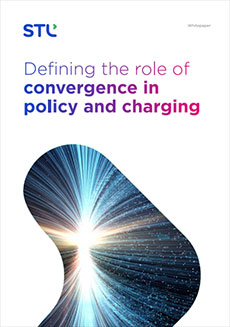Defining the role of convergence in Policy and Charging
A common engine for policy and charging
Over the past few decades, charging has been a critical element of telecom operations. With the evolution of mobile internet and high data usage, policy control has also become equally important. Although network operators and telecom vendors have always treated these two functions (Policy Control and Charging) differently, if you look closely, they are meant to complement each other and hence be aware of each other.
STL dPCC is a convergent policy and charging solution for all network types, ranging from 2G, 3G, 4G, VoLTE, FTTx, Wi-Fi, IoT and 5G. dPCC provides a common policy and charging engine, without any need of a reference-point (unlike Sy or proprietary), a Common Rating, Charging and Policy Catalogue and a common Subscriber-Profile-Repository for PCRF and OCS. The integrated functions deliver faster response time, reduced time to create a new product plan and reduced compute and storage requirements.
The time is right to converge policy and charging
If we consider recent trends in mobile data charging, more than 80% (in some geographies more than 95%) of data plans are of bundled, i.e one time charge for some gigabytes of usage along with other services. since, data usage is bundled, it does not require any rating/charging functionality, but only usage management.However, the online rating/charging traffic generated by such usage is more than 80% of total charging traffic hitting on OCS (Online Charging System).



